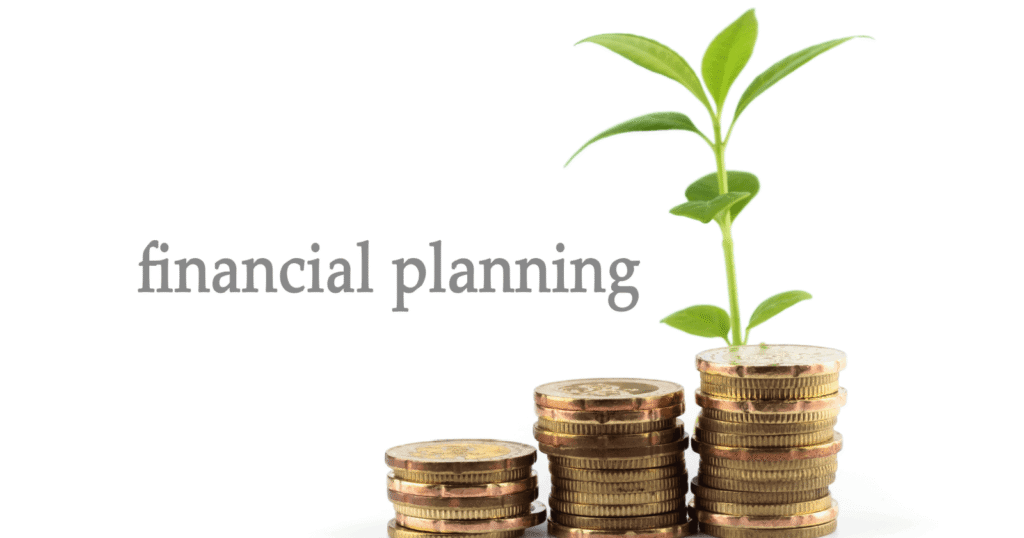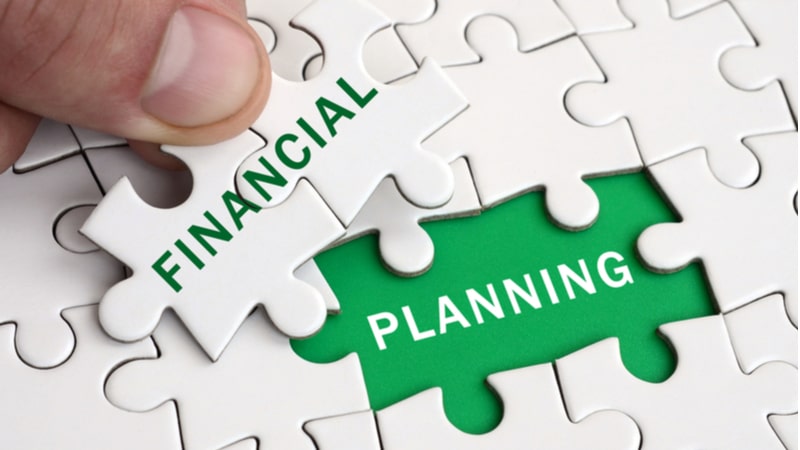Financial freedom means having enough income, savings, and investments to support your desired lifestyle without depending on traditional employment. It is about making intentional choices to control your money, rather than letting money control you. The path to financial freedom often feels daunting but becomes achievable with a clear, structured financial plan.
Financial planning is the process of setting goals, analyzing your current financial position, creating a strategy, and monitoring progress to meet those goals. It acts as a roadmap that guides your financial decisions and behaviors. Without a financial plan, it’s easy to fall into pitfalls like debt, overspending, or inadequate savings, which can delay or prevent achieving financial freedom.
In this article, we explore how financial planning helps you gain control over your money, reduce financial stress, build wealth, and ultimately achieve financial freedom.
Key Takeaways
- Financial freedom means controlling your money to support your ideal lifestyle.
- A comprehensive financial plan aligns your daily actions with long-term goals.
- Budgeting, debt management, emergency funds, and investing are critical pillars.
- Regular review and adjustment keep your plan relevant.
- Professional advice and digital tools can enhance your planning process.
The Role of Financial Planning

Financial planning serves as a roadmap to achieving financial freedom. It involves assessing your current financial situation, setting realistic goals, and developing strategies to meet those goals. A well-structured financial plan helps you manage your income, expenses, savings, and investments efficiently, ensuring that you are on track to achieve your desired financial outcomes.
Understanding Financial Freedom
What is Financial Freedom?
Financial Freedom is the ability to live life on your own terms without being constrained by financial limitations. It means having enough income—especially passive income—to support your lifestyle, goals, and responsibilities without needing to work actively just to survive.
It’s not about being a millionaire or living lavishly. Rather, it’s about control, independence, peace of mind, and choice—choosing to work (or not), travel, retire early, or pursue passion projects without worrying about your finances.
Key Aspects of Financial Freedom
Income Independence
Financial freedom starts when you no longer depend entirely on a paycheck or a traditional job to meet your needs.
Sources of Income Could Include:
- Investments (stocks, mutual funds, bonds)
- Real Estate (rental income)
- Dividends from stocks
- Royalties (from books, music, patents, etc.)
- Online businesses or digital products
- Annuities or passive income streams
Once your passive income equals or exceeds your monthly expenses, you’ve achieved a significant level of financial freedom.
Being Debt-Free or Managing Debt Responsibly
High-interest debts like credit card balances or payday loans can derail any financial plan. Financial freedom doesn’t always mean having zero debt—it can mean:
- Paying off bad debt
- Managing good debt (like a mortgage or business loan) wisely
- Using debt strategically for investment purposes
When your debt doesn’t control your cash flow or cause anxiety, you’re closer to financial freedom.
Ability to Cover All Living Expenses
One of the biggest indicators of financial freedom is being able to cover both essential and discretionary expenses without stress.
This includes:
- Monthly bills (utilities, rent/mortgage, groceries)
- Health and insurance costs
- Unexpected expenses (car repair, medical emergency)
- Lifestyle choices (travel, hobbies, dining out)
Achieving this requires budgeting, saving, and building an emergency fund.
Flexibility and Security
Financial freedom brings options—something many people don’t have when living paycheck to paycheck.
It gives you the freedom to:
- Switch careers or take a sabbatical
- Start a business
- Work part-time or freelance
- Travel for extended periods
- Spend more time with family
- Retire early
This kind of financial security means you’re no longer trapped by money but empowered by it.
Peace of Mind and Mental Freedom
One of the less-discussed but deeply valuable aspects of financial freedom is emotional well-being.
Living with financial stress can lead to:
- Anxiety and sleeplessness
- Strained relationships
- Poor decision-making
- Reduced productivity
When you know your finances are in order, you gain:
- Peace of mind
- Confidence in the future
- Time and energy to focus on health, relationships, and passions
Steps Toward Achieving Financial Freedom
- Set clear financial goals
- Track spending and create a budget
- Eliminate bad debt
- Save and invest consistently
- Diversify income streams
- Build an emergency fund
- Learn continuously
Different for Everyone
Financial freedom looks different depending on your personal values, lifestyle, and goals. For some, it might mean early retirement; for others, it could be the ability to work part-time, travel, or support family without financial worries.
How It Differs from Wealth
Wealth refers to the total value of your assets minus liabilities. Financial freedom is more about cash flow—having enough income to sustain your lifestyle regardless of your net worth. Someone can be wealthy on paper but not financially free if they don’t have enough liquidity or passive income to cover expenses.
Why Does Financial Freedom Matter?
Less Stress: Achieving financial stability through proper planning greatly reduces the constant worry about meeting monthly expenses or handling unexpected emergencies. Knowing you have a safety net in place provides peace of mind and improves overall mental well-being.
More Control: Financial freedom empowers you to make decisions based on your values and desires rather than being constrained by financial limitations. This autonomy lets you choose your lifestyle, career path, and how you spend your time without the pressure of living paycheck to paycheck.
Opportunity: With financial independence, you gain the flexibility to pursue passions, travel the world, or start your own business without the fear of losing a steady income. This opens doors to personal growth and new experiences that might otherwise feel out of reach.
Legacy: Beyond personal benefits, financial freedom allows you to build and pass down wealth to future generations or support charitable causes close to your heart. This creates lasting impact and ensures your values endure beyond your lifetime.
The Role of Financial Planning in Achieving Financial Freedom

Aligning Actions with Goals
Financial planning turns vague dreams into actionable steps. Whether it’s paying off debt, building an emergency fund, or investing for retirement, a plan connects your daily financial decisions to your long-term vision.
Avoiding Pitfalls
Without planning, impulsive spending, poor investment choices, and neglecting risk protection can derail your financial progress. Planning helps anticipate challenges and prepare accordingly.
Core Components of a Financial Plan
Goal Setting: The Foundation of Financial Planning
Using SMART goals—Specific, Measurable, Achievable, Relevant, and Time-bound—gives your financial planning direction and purpose.
Examples include: “Save $20,000 for a down payment in 3 years” or “Eliminate credit card debt in 18 months.”
Clearly defined goals help prioritize spending and investment decisions and enable better progress tracking.
Budgeting and Cash Flow Management
Track all sources of income and compare them with monthly expenses to identify surpluses or shortfalls.
Prioritize essential needs (housing, food), discretionary wants (entertainment, dining), and savings.
Popular methods include the 50/30/20 rule (needs/wants/savings) or zero-based budgeting, where every dollar is allocated.
Debt Management
Begin by identifying high-interest debts such as credit cards and payday loans, which can snowball quickly.
Use the debt snowball method (pay smallest debts first) or avalanche method (pay highest interest rate first) to systematically reduce liabilities.
Avoid taking on new debt unless it’s strategic, like a low-interest mortgage or education loan.
Emergency Fund
Aim to build a fund that covers 3–6 months of living expenses, tailored to your job stability and dependents.
Keep these funds in a liquid, low-risk account like a high-yield savings or money market account for fast access.
An emergency fund prevents reliance on credit cards or loans during crises, preserving your long-term financial plan.
Investment Planning
Assess your risk tolerance (comfort with volatility) and time horizon (how long you can invest before needing the money).
Diversify your portfolio across stocks, bonds, mutual funds, ETFs, and even real estate to spread risk.
Leverage tax-advantaged accounts such as Roth IRAs, traditional IRAs, and employer-sponsored 401(k)s to maximize returns.
Retirement Planning
Start contributing as early as possible to take advantage of compound interest—the longer your money is invested, the more it grows.
Make consistent contributions to retirement accounts like 401(k), IRA, or pension plans, ideally at least enough to get any employer match.
As retirement nears, shift asset allocation toward more conservative investments to reduce market risk.
Insurance and Risk Management
Secure insurance coverage in key areas: health, life, disability, auto, and homeowners/renters insurance.
Insurance acts as a safety net to protect against events that could otherwise deplete your savings or force debt.
Reassess your policies periodically to ensure coverage aligns with changing life circumstances.
Estate Planning
Establish key documents like a will, living trust, power of attorney, and healthcare proxy to ensure your wishes are respected.
This helps in the smooth transfer of assets, avoiding family disputes and potentially reducing estate taxes.
Also consider beneficiary designations on retirement accounts and insurance policies—they override wills.
Practical Steps to Start Your Financial Planning Journey
Assess Your Current Financial Situation
Start by listing all income sources (salary, side hustles, passive income), fixed and variable expenses, outstanding debts, and assets like property or savings. Understanding your net worth gives you a clear snapshot of where you stand financially and what areas need attention.
Define Your Financial Goals
Break your goals into short-term (e.g., build an emergency fund), mid-term (e.g., buy a home), and long-term (e.g., retirement). Clearly defined goals provide direction, help prioritize spending, and give purpose to your budgeting and saving efforts.
Create a Budget
Use a budgeting method that suits your style (like the 50/30/20 rule or zero-based budgeting) to plan how every dollar will be spent or saved. Track your expenses regularly to stay within limits and reallocate funds when necessary to meet your goals faster.
Develop a Debt Repayment Plan
List debts by interest rate and balance. Use either the avalanche method (focus on high-interest debt first) or snowball method (focus on smallest balances) to repay efficiently. Avoid new debt unless it’s strategic, like a low-interest mortgage.
Build an Emergency Fund
Aim to save at least 3–6 months of essential living expenses. Keep it in a high-yield savings account for easy access and safety. This fund acts as your first line of defense against job loss, medical bills, or unexpected repairs.
Review and Adjust Regularly
Revisit your plan monthly or quarterly. Life events—such as a new job, marriage, or having children—can impact your goals. Adjust your budget, investments, and priorities to stay aligned with your current situation.
Start Investing
Begin with small, regular contributions to retirement accounts or index funds. Take advantage of employer-matched 401(k) plans, IRAs, or robo-advisors. The earlier you invest, the more you benefit from compound growth.
Overcoming Common Challenges

Procrastination: Putting off financial planning or delaying important money decisions can severely hinder your progress toward financial freedom. To combat this, set regular reminders for budgeting, bill payments, and reviewing your financial goals. Additionally, having accountability partners—whether a trusted friend, family member, or financial advisor—can provide motivation, encouragement, and honest feedback to keep you on track.
Market Volatility: Financial markets naturally fluctuate, and it’s easy to feel anxious during downturns. However, focusing on the long-term perspective helps smooth out short-term ups and downs. Staying committed to your investment plan, regularly contributing to your portfolio, and avoiding emotional reactions like panic selling are key strategies to weather volatility and benefit from compounding growth over time.
Lifestyle Inflation: As your income grows, there’s often a temptation to increase spending proportionally, which can stall savings and investment goals. To avoid lifestyle inflation, consciously maintain a modest lifestyle, increase savings or investments with each raise, and set clear financial priorities. This disciplined approach accelerates wealth-building and moves you closer to financial freedom.
Balancing Needs and Wants: Striking the right balance between enjoying life now and securing your financial future is critical. Prioritize your essential needs and financial goals but also allow room for reasonable enjoyment and discretionary spending. This balance reduces burnout, makes sticking to your plan sustainable, and ensures you don’t sacrifice quality of life while building wealth.
Tools and Resources
Budgeting Apps: Tools like Mint, YNAB (You Need A Budget), and EveryDollar help you track your income, expenses, and savings goals in real time. They provide visual reports and alerts, making it easier to stick to your budget and spot spending patterns.
Investment Platforms: Vanguard, Fidelity, and Robinhood offer user-friendly access to a wide range of investment options, from stocks and bonds to ETFs and mutual funds. These platforms cater to beginners and experienced investors alike, often with low fees and educational support.
Financial Advisors and Planners: Professional advisors provide personalized financial strategies tailored to your unique goals, risk tolerance, and timeline. They can help with retirement planning, tax optimization, estate planning, and investment management.
Educational Resources: Books like The Intelligent Investor, podcasts such as The Dave Ramsey Show, and online courses from platforms like Coursera or Khan Academy offer valuable knowledge to improve your financial literacy and Empower you to make informed decisions.
Also Read: Can You Really Achieve Financial Freedom Through Smart Money Management?
Conclusion
Financial planning is your roadmap to financial freedom. By understanding your finances, setting clear goals, budgeting wisely, managing debt, and investing prudently, you gain control over your money and your future. The journey requires discipline and patience, but with a solid plan, you can achieve the independence and security you desire.
Achieving financial freedom is not an overnight journey—it’s a long-term commitment built on clarity, discipline, and informed decision-making. Financial planning is the structured process that transforms dreams into actionable steps. It’s not just about managing money; it’s about gaining control over your future, reducing stress, and empowering yourself to live life on your own terms.
Through effective financial planning, you develop a deep understanding of your income, expenses, and savings goals. You learn to navigate debt wisely, invest strategically, and protect your assets with the right insurance. It helps you build a safety net for life’s unexpected turns and prepares you for the milestones ahead—from buying a home to retiring with dignity.
FAQs
How soon should I start financial planning?
The sooner, the better. Early planning harnesses the power of compounding and builds good habits.
Can I achieve financial freedom with a low income?
Yes, by managing expenses, avoiding debt, and investing wisely over time.
What if I have debt—is financial freedom still possible?
Absolutely. Financial planning helps prioritize debt repayment alongside saving and investing.
How do I choose the right investment strategy?
Consider your risk tolerance, goals, and time horizon, and diversify your portfolio.
Do I need a financial advisor?
Not always, but they can provide valuable expertise and accountability.
What’s the biggest mistake in financial planning?
Failing to adjust your plan as circumstances change.
How often should I update my financial plan?
At least once a year or after major life events.
